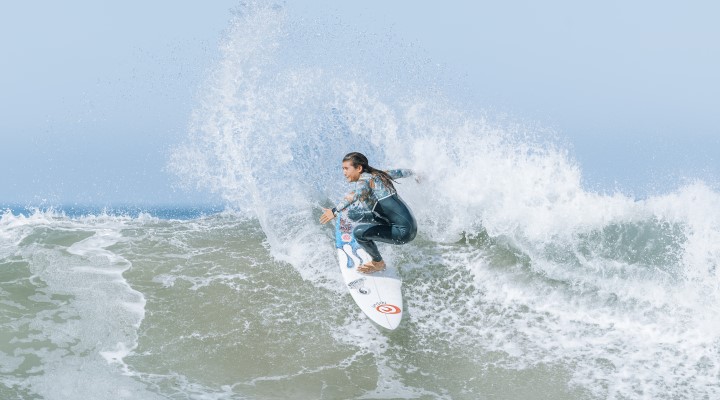The worldwide surfing population is estimated at between 17 million and 35 million, and one thing they all share in common is a love for the ocean and a desire to protect it, and the planet, from pollution. But despite the eco-conscious attitudes of this customer base, there are limited options when it comes to the recycling of surfing gear such as wetsuits. British surfing brand Finisterre estimates that in the UK alone, around 380 tonnes of old wetsuits end up in landfill every year.&nbs
r.
Wetsuits are made from neoprene, a synthetic rubber material that is non biodegradable and therefore problematic for landfills. This B Corp has created an eco wetsuit, made from a biorubber called Yulex that has similar benefits to neoprene but is kinder to the environment. And in November 2017, the brand hired the world’s first ever full-time wetsuit recycler.
Last week, Rip Curl made a significant step forward on sustainable surfwear, with the announcement of Australia’s first wetsuit take back recycling program in partnership with TerraCycle. Surfers can recycle any surf branded wetsuit at a participating Rip Curl store in Victoria, New South Wales, Queensland and Western Australia.
“Rip Curl creates products for surfers, by surfers, and we want to ensure we extend the life of those products and repurpose them into a second commodity,” said Shasta O’Loughlin, environmental social governance (ESG) manager at Rip Curl.
Through this program, the recycled rubber will be used in soft fall matting at playgrounds and outdoor gyms.
Rip Curl first launched a local wetsuit recycling program at its flagship store in Torquay, Victoria, in 2018 and immediately realised the demand from surfers for a recycling solution.
“Our core customers are surfers, who are eco-conscious in their own way. No surfer wants to surf in polluted oceans or see communities unable to manage waste,” O’Loughlin told Inside Retail.
“Wetsuits are a high-value item, where customers are connected to those suits that take them on the surf, and therefore, providing an option to recycle those suits fit our purpose.”
After over three years developing the most effective and environmentally conscious solution, the surfing brand turned to TerraCycle to manage the recycling process.
“One of the greatest challenges we faced when developing the wetsuit takeback program, was finding a processor that would be able to accept these materials and have the capability to scale this initiative. Hence, why we chose to partner with TerraCycle on this, as the experts in hard-to-recycle waste with a global supply chain,” O’Loughlin said.
Once Rip Curl is confident in the program, it will look to expand both in Australia and globally.
Beyond wetsuits
The take back program is just one of the sustainability measures in place at Rip Curl, with the business continuously testing new solutions.
“Rip Curl is always looking for ways to reduce our impact, whether it’s through design, production, or after-sale service we strive to be the best. Offering customers repair services on their wetsuits also extends the life, saving them from waste streams,” O’Loughlin said.
While certain items such as booties, gloves, hoods and heavy diving dry suits are not included in this initiative, TerraCycle is confident that, in time, more solutions can be developed for the surfing industry.
“As experts in hard-to-recycle waste, we’re confident that we can find a solution for any waste stream,” Jean Bailliard, general manager of TerraCycle Australia and New Zealand told Inside Retail.
“We hope this initiative will give the wider surf industry the confidence to provide recycling solutions for their products too.”

